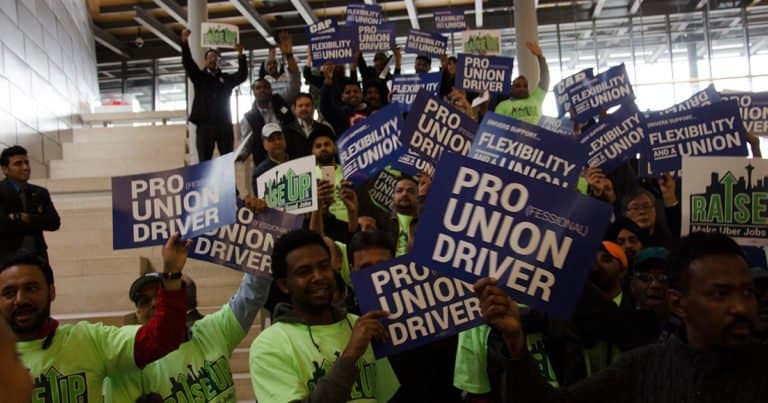Newly-unionized medical residents at the University of Washington, currently in negotiations for higher pay and benefits, now have the support of five of Seattle’s City Council members, reports The Seattle Times. In a letter to the UW president the Council members urged the University to meet the “reasonable demands” of the University of Washington Housestaff Association (UWHA), which represents over 1,500 doctors who are residents or fellows at the University. “These physicians provide an invaluable service to our community and deserve to be compensated fairly. Shockingly, however, many of these physicians earn less than our city’s hourly minimum wage.” The UWHA won the right to collectively bargain just last year despite the University’s objections that the doctors in training were students paid stipends rather employees who merited benefits.
The Los Angeles Times reports that 2016 is “poised” to be a great year for wage growth. As a spate of economists, statisticians and other analysts have pointed out, base pay for workers increased much more over the last year than originally thought. In the third-quarter of this year, the average workers’ take home pay was 4.1% higher than it had been a year prior. As a result, says Mark Zandi, the chief economist at Moody’s Analytics, 2016 will likely be a “breakout year for wage growth.”
2015 has witnessed a dramatic change in the rate of paid family leave policies in private and public workplaces, according to a recent NPR broadcast. “[W]e are in a tremendously different place than 12 months ago,” says Vicky Shabo, the vice president of the National Partnership of Women and Families. Ebay and Credit Suisse expanded their family leave policies within the past two months and over the past year Netflix, Nestle, Marriot, and Hilton, among others, have all done the same. Yet while more and more companies are offering paid leave options, still, only 13% of American workers have paid family leave, as compared to the 75% of workers who have paid sick leave. But with cities like Washington’s Portland and Seattle requiring companies to provide paid leave and Washington DC considering a bill that would provide 16-weeks of family leave, those statistics might change dramatically in 2016.
Workers’ take-home pay is flat lining due to higher premiums on employer-sponsored insurance, says Sally Pipes, president of the Pacific Research Institute, writing for Forbes. While her piece “Obamacare makes employer-based system even worse” primarily argues that the Affordable Care Act has not, as promised, reduced health care costs, she also highlights that those rising costs are also eating away at employees’ compensation. “Higher premiums eat up cash that that could have gone to raise a worker’s wages or boost his or her retirement account.”






Daily News & Commentary
Start your day with our roundup of the latest labor developments. See all
October 16
NLRB seeks injunction of California’s law; Judge grants temporary restraining order stopping shutdown-related RIFs; and Governor Newsom vetoes an ILWU supported bill.
October 15
An interview with former NLRB chairman; Supreme Court denies cert in Southern California hotel case
October 14
Census Bureau layoffs, Amazon holiday hiring, and the final settlement in a meat producer wage-fixing lawsuit.
October 13
Texas hotel workers ratify a contract; Pope Leo visits labor leaders; Kaiser lays off over two hundred workers.
October 12
The Trump Administration fires thousands of federal workers; AFGE files a supplemental motion to pause the Administration’s mass firings; Democratic legislators harden their resolve during the government shutdown.
October 10
California bans algorithmic price-fixing; New York City Council passes pay transparency bills; and FEMA questions staff who signed a whistleblowing letter.